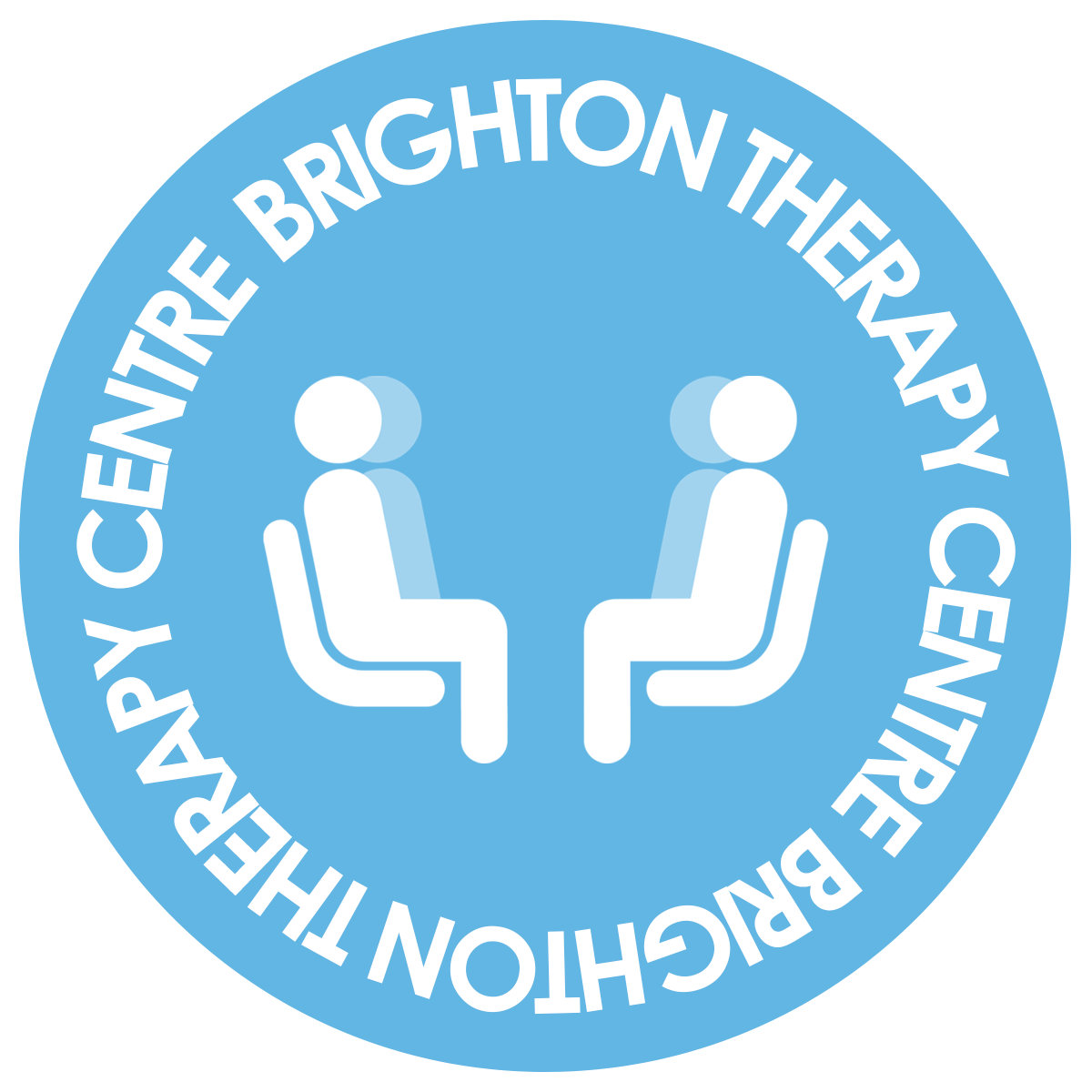
Art Therapy
Art therapy is a therapeutic practice that supports individuals as they express themselves through artistic methods.
Through art therapy, individuals can learn more about themselves and apply what they have learned to their practical life experience whilst also experiencing a form of healing and enhanced mental wellbeing.
Art therapy invites an individual to engage in an alternative method of communication that is not limited by language. Like other forms of therapy, art therapy can facilitate self-awareness, nurtures an individual’s sense of resilience, and enhances an individual’s social skills. It can also help an individual heal from experiences of trauma.
Good to Know:
- Art therapy techniques can include working with collage, sculpting, finger painting, and other creative practices.
- Individuals of all ages can benefit from art therapy.
- An individual does not need to be artistic to engage with and benefit from art therapy
Our Art Therapists:
Grainne McHugh
Alice Barker
Sue Griffin
More Information:
The British Association of Art Therapists
Art Therapy: The Movie (2016)
The Why and How of Art Therapy (University of Queensland Faculty of Medicine)

Cognitive Behavioural Therapy (CBT)
Introduction:
Cognitive behavioural therapy (CBT) is different from other talking therapies because it explores the impact of an individual’s thoughts, beliefs and attitudes on their feelings and actions. It focuses on coping skills for various problems, linking the things you think with the things you do.
CBT is often a short-term treatment. Many CBT practitioners will suggest that activities outside of the sessions, like writing in a journal or completing worksheets, take place to augment the work being done whilst in session. CBT can help an individual gain insight and perspective, and it can help with a variety of mental health problems including phobias, sleep problems, stress, drug and alcohol problems and other concerns.
Good to Know:
- CBT works with the idea that the way individuals think about something affects the way they feel and behave.
- CBT can help with physical health problems alongside mental health problems.
- During a session, an individual might talk about both the past and the present moment.
Meet Our Practitioners:
Claire Lim
Nirvana Crowley
Steve Morris
More Information:
What is CBT? Making Sense of Cognitive Behavioural Therapy
9 CBT Techniques for Better Mental Health
Personal Accounts of CBT

Cognitive Analytic Therapy (CAT)
Cognitive analytic therapy (CAT) explores relationship patterns, especially the ones established early in life that continue to influence experiences in the present day. CAT looks at an individual’s current difficulties in the context of previous experiences.
This kind of therapy is time-limited and structured, with beginning, middle and end phases. The relationship between the therapist and the individual is key to the experience of being in therapy, and CAT’s collaborative approach means that sessions are often interactive and dynamic.
Good to Know:
- CAT focuses on patterns: patterns of relating to oneself and to others, of emotional reactions, and of ways of coping.
- CAT involves the creation of letters and diagrams to facilitate understanding.
- CAT can help individuals make positive changes to their relationships with others and with themselves.
Meet Our CAT Therapist:
More Information:
What is cognitive analytic therapy (CAT)?
What is the difference between CAT and CBT?
CAT: Cognitive Analytic Therapy

Dynamic Interpersonal Therapy (DIT)
Dynamic Interpersonal Therapy (DIT) helps individuals understand their relationships by taking them back to their childhood and relating what they learned back then to their experience in the present moment. The DIT protocol aims to identify the origins of an individual’s difficulties in relationships through practices that encourage reflection, a process that helps to ease psychological stress.
DIT is a time-limited individual therapy that was designed specifically to address an individual’s experience with depression and/or anxiety as a result of difficulty in relationships with others. DIT incorporates psychoanalytic and psychodynamic approaches, and the work takes place over 16 weekly sessions.
Good to Know:
- DIT is particularly useful for individuals who experience depression and anxiety as a result of difficulties in relationships.
- DIT may be a helpful option if an individual has tried CBT and found that CBT is not in-depth enough to offer sufficient relief.
- DIT involves a collaborative approach to goal-setting.
Meet Our Practitioners:
More Information:
Dynamic Interpersonal Therapy (DIT) (NHS Tavistock and Portman)

Eye Movement Desensitization and Reprocessing (EMDR)
EMDR therapy can help individuals who are living with the continued impacts of negative past experiences.
The underlying theory of EMDR states that difficulties in the present moment have their origins in memories that have not yet been fully processed. EMDR helps individuals to process painful memories in a way that can reduce and even eliminate symptoms as well as help manage future fears.
EMDR employs a structured approach to working with individuals and their trauma memories. The structure involves eight phases of treatment, and all of them work together to allow the mind to heal from difficult emotional wounds.
Good to Know:
- Using EMDR to treat post-traumatic stress disorder (PTSD) is an evidence-based treatment; for example, the World Health Organization (WHO) recognises EMDR as an effective treatment for trauma.
- EMDR can be a highly effective treatment for a large variety of mental health issues.
- EMDR therapy is client-centred and relational.
Meet Our Practitioners:
Alice Barker
Maureen McCamley
Alicia Meseguer
More Information:
The History of EMDR
What is Eye Movement Desensitization Reprocessing Therapy? (video Psych Hub)Animation to Explain EMDR Therapy and Trauma (video EMDR Association UK)
Discover EMDR (EMDR Association UK)

Gestalt Therapy
Gestalt therapy focuses on your experience with your therapist in the present moment within the safe space of the therapy room. It allows for exploration of both the here and now and the past, linking the two facets of your experience by concentrating on how you feel at this very moment rather than how you felt before.
This approach helps individuals focus on their thoughts, feelings and behaviours in order to better appreciate how they interact with others in their lives.
The word ‘gestalt’ is a German word that means ‘whole’, ‘pattern’, or ‘form’. Gestalt therapy looks at life experiences in a holistic way to help individuals develop self-awareness. This kind of therapy can be an engaging and dynamic experience that often draws an individual’s creativity to build confidence and open avenues.
Good to Know:
- Gestalt therapy is effective in the treatment of a wide range of mental health concerns and can be beneficial in both the long term and the short term.
- The philosophical underpinnings of Gestalt therapy concern the belief that the whole of an individual is different from the sum of its parts.
- Gestalt therapy supports the development of greater self-awareness
Meet Our Practitioners :
Lisa Caughey
Sue Boyer
Kieran Baine
More Information:

Group Psychotherapy & Group Analysis
Group Psychotherapy can help with:
- problems in making and sustaining relationships
- social anxiety
- difficulty in finding a voice when in a work, family or social group
- feeling left out or on the edge in social situations
- being isolated as child / finding it hard to maintain adult friendships
- feeling ashamed of feelings and anxieties which you have kept private and never been able to talk about
- hearing others share similar experiences can help you discover you are not alone)
What is Group Psychotherapy?
It may come as no surprise that the people who can most benefit from a group are often the ones who least want to join one!
Group therapy is an evidence based, effective long term treatment for people struggling with emotional distress and interpersonal problems. It provides a space where you can talk with others in order to understand and overcome these difficulties. It is also a powerful tool for personal development and learning which can be of benefit to anyone who is interested in exploring more about themselves.
Talking in a group is beneficial in a number of ways. You can clarify your difficulties through discussion with others. You can also express the pent-up feelings which surround and complicate your problems in an accepting atmosphere. You are likely to gain encouragement from the discovery that other group members are struggling with similar difficulties and are making progress with them. Your self-esteem can improve as you find that you can be helpful to, and appreciated by, other members of the group. The opportunity to speak seriously with others and to give and receive honest feedback can help to improve your confidence.
Group Analytic Psychotherapy is a form of psychodynamic psychotherapy, which incorporates elements of Interpersonal Therapy (I.P.T.). It is indicated in the Department of Health N.I.C.E. Guidelines For Treatment of Depression as an effective treatment for complex and persistent mood disorders including social anxiety and bi-polar affective disorder. Groups meet for 90 minutes weekly and for those who require a more intensive approach, a twice weekly group is available which meets for 90 minutes twice a week.
How does it work?
In preparation for joining a therapy group you will be offered 2-3 individual sessions with the group therapist.
These sessions are an opportunity to clarify in more detail the issues that you want to work on. This can sometimes take place over a period of weeks or months depending on whether the group is established or being newly set up. Longer term individual work may also be possible with a view to joining a group and can be discussed with the group therapist. The fees for individual sessions are on a scale of £20 – £66, depending on your budget and the experience of the therapist.
Group members commit to work on their issues for at least a year and usually longer. Each group consists of up to eight men and women who meet for 90 minutes once or twice a week. Everything shared is confidential and you are invited to share whatever feels to be most important. This is like free-association in psychoanalysis, when one person shares an experience others can add their own memories or experiences so that a full picture develops. Hearing others’ experiences can be helpful as we realise that we are not alone and that our problems are part of being human. We can also see ourselves in others who can act like mirrors.
Groups can offer honest and frank feedback as to how others experience you, these can be observations that you are unlikely to hear in everyday life. As trust develops, it is possible to explore how you relate to others in the group. This may resemble relationships in your life outside or from childhood. You may discover that there are recurring patterns in the way that you approach others. Some of these can be counterproductive.
A group offers the chance to try out new ways of being with others as a step towards forming more satisfying personal, social, family or work relationships.
Brighton Therapy Centre are pleased to be supported by The Counselling Directory, who offer a free listing for our group psychotherapy services, including our low cost options.
What approach is used?
The groups use an approach called Group Analysis. This draws on the insights of psychoanalysis and sociology as models for understanding human relationships.
We all start our lives as a member of a family group. Conflicts in our early relationships can get carried over into adulthood. We may be conscious of this process. But there can also be unconscious conflicts left over from our past which result in symptoms such as low self-esteem, lack of confidence, depression, anxiety, panic attacks, social phobias or difficulties in relationships.
How does it help?
- Belonging to a group who are interested to hear about your life, your ups and downs and your reflections.
- Learning how to reach out and be more open in close relationships.
- Learning to communicate under pressure.
- Improving the quality of your relationships. g. not getting stuck in just pleasing others or repeatedly agreeing to do things you don’t want to do.
- Becoming more resilient and less reactive when faced with disappointment or rejection.
- Being able to participate in groups without having to be either at the centre or withdrawing completely.
- Being able to be true to yourself with others.
For an example of group therapy practice from the US, see the acclaimed YouTube series Group here:
Stories
Jo’s story
Jo came into the group having had a serious episode of depression. She had a pattern of having a series of internet relationships but never staying with the same partner for more than a few months.
Each time she got involved, she started to feel trapped. In the group she found it very hard at first as she felt like nobody would be interested in her unless she was either funny or helpful. It took some time until she began to talk about long buried experiences from her childhood where she had felt unprotected and lonely. At this point, she started to feel close to others in the group and began to open up and feel closer to her partner outside the group.
“it was all about learning to be human”
This was how one group member summed up their times in a group. Realising that we are all struggling with both painful and joyful experiences, hearing others talk about their vulnerable feelings can be liberating as we realize we are not alone.
David’s story.
David grew up an only child and struggled to make close friends. He had always found social groups difficult, having been teased at school and often felt self-conscious and awkward.
In relationships he tended to be drawn to women who were aloof and critical. During his time in the group he noticed that he tended to either get very involved or withdraw completely. This was similar to what had happened in his family where he had either felt close to his parents or would spend long periods on his own.
The group helped him to learn how to chip in, to stay involved during group conversations and talk about his feelings. Being a valued member of a therapy group helped him in his other social groups where he felt more comfortable being himself.

John Cleese and Group Psychotherapy
John Cleese is probably one of the most well-known people to have publicly acknowledged being helped by over three and a half years of group analysis with Robin Skynner, the group analyst and family therapist.
In his book Families and How to Survive Them, he writes:
“After about a year, I began to feel I was undergoing the most interesting experience of my adult life. For a start, once we’d all lowered our barriers a bit, I was able to see my fellow group members behaving in a freer, more open way than you can ever hope to observe in normal social life, except perhaps with your two or three most intimate friends.”
Weekly Groups :
Mondays 5.00pm – 6.30pm with Marci Lopez Levy, UKCP
Tuesdays 7.00pm – 8.30pm with Sue Griffin, UKCP.
Wednesdays 7.15pm – 8.45pm with Marci Lopez Levy, UKCP.
Wednesdays 7.00pm – 8.30pm with Havva Mustafa, BACP.
Thursdays 7.15pm – 8.45pm with Sue Griffin, UKCP.

Humanistic Therapy
Humanistic therapies focus on self-development, growth and responsibilities. They seek to help individuals recognise their strengths, creativity and choice in the ‘here and now’.
The humanistic approaches are based on the belief that we all naturally gravitate towards goodness. While of course, difficult life experiences may temporarily block our ability to reach our potential, with the right support, we all have the ability to achieve our goals.
A humanistic therapist will work to create a safe, supportive space where clients will be able to explore themselves and their potential, ultimately working towards developing their own personal growth – mentally, emotionally and spiritually.
The benefits of humanistic therapy
The humanistic approaches are especially suited to anyone feeling lost, struggling with low self-esteem or generally looking to improve well-being.
Humanistic therapists will also work with people living with specific conditions, such as anxiety, panic disorders, addiction, depression, obsessive-compulsive disorder (OCD), and more complex mental health problems.
Integrative practice
Humanistic practitioners usually draw on different theories and approaches in collaboration with the client to find the right way of working for each individual.
They are likely to be informed by:
Person-centred therapy
(also known as “client-centred” counselling), based on the belief that being valued as a person, without being judged, can help an individual to accept who they are, and reconnect with themselves.
Existential therapy
Which explores certain issues from a philosophical perspective, and is interested in the importance of meaning and purpose in our lives.
Transactional analysis
Which focuses on our relationships and communications with others.

Psychoanalytic Psychotherapy
Psychoanalytic psychotherapy is an unstructured, medium to long-term talking treatment for mild, moderate and severe emotional difficulties. Whilst everyone experiences occasional emotional distress, for some people the problems keep coming back again and again.
In these cases, there can be unresolved conflicts from the past that are stirring up strong feelings in the present, pushing the individual into self-destructive patterns. Psychoanalytic psychotherapy is indicated by the government N.I.C.E guidelines as a recommended treatment for people with recurring or complex emotional problems. It is also an invaluable treatment for those with attachment difficulties, since the nature of the relationship between therapist and patient, and what it might represent, is one of the therapeutic tools of the treatment process.
It may be that you have previously sought help of a supportive nature but found your problems did not fundamentally change. Psychoanalytic psychotherapy is suitable if you want to look deeper into yourself in order to make lasting changes. There may be strong feelings attached to current issues which you cannot fully account for. It can also be that you feel empty and lacking in the capacity to feel or express any emotions. You may be experiencing a loss of meaning in your life, having difficulties in your relationships or in handling the pressures of everyday living. You may need to understand how traumatic or abusive relationships have impacted you. This in turn can free you to make more positive and loving relationships in the present.
Psychoanalytic psychotherapy can help you to uncover the underlying causes of your problems. When painful memories are talked about they can begin to lose their power. Facing up to your fears and your feelings can help you to discover new strengths and resolve some of the underlying symptoms. Knowing more about yourself can help you to make the changes you need in your life.
In psychoanalytic psychotherapy you are invited to speak as openly as possible about whatever comes into your mind. As you talk, your therapist will listen and offer you a space to express yourself. It can take time to build up enough trust, but after a while it is likely that you will find relief in sharing things which you had never imagined you could talk about.
You may also discover patterns in the way that you relate to your therapist and those around you. As these emerge, it can be helpful to link them with past experiences which have influenced the way that you approach people. A psychoanalytic psychotherapist does not give advice. They will listen and try to understand. Through an on-going conversation, they will help you to understand how your past experiences have influenced the way that you relate to yourself and to others in the present.

People seeking psychoanalytic psychotherapy are usually those who are seeking a greater understanding of their symptoms and behaviour.
So, in order to benefit from it, you will need to have some curiosity about the struggles you are facing. This motivation is important because psychoanalytic psychotherapy can be uncomfortable at times, as well as rewarding. Facing feelings and experiences that you may prefer to forget or not think about can be hard.
Psychoanalytic Psychotherapy is an evidence-based treatment and several studies have been completed and published showing its effectiveness. A good overview of this research is a book entitled ‘What works for whom?’ by Anthony Roth and Peter Fonagy. A more recent article from Scientific American published in March 2010 also offers
‘…the strongest evidence yet that psychodynamic psychotherapy — “talk therapy” — works. In fact, it not only works, it keeps working long after the sessions stop.’

Psychodynamic Therapy
Like psychoanalysis and psychoanalytic therapy, the aim of psychodynamic therapy is to bring the unconscious mind into consciousness – helping individuals to unravel, experience and understand their true, deep-rooted feelings in order to resolve them.
It takes the view that our unconscious holds onto painful feelings and memories, which are too difficult for the conscious mind to process. Often, psychodynamic therapy is shorter than psychoanalytic therapy with respect to the frequency and number of sessions, but this is not always the case.
Psychodynamic therapy will typically focus on recognizing, acknowledging, understanding, expressing, and overcoming negative and contradictory feelings and repressed emotions in order to improve the client’s interpersonal experiences and relationships. This includes helping the client understand how repressed earlier emotions affect current decision-making, behaviour and relationships. Psychodynamic therapy also aims to help those who are aware of and understand the origins of their social difficulties, but are not able to overcome their problems on their own. Clients learn to analyse and resolve their current issues and change their behaviour in current relationships through this deep exploration and analysis of earlier experiences and emotions.
The psychodynamic approach is designed to help individuals with a wide range of problems including anxiety, addiction, depression and eating disorders. It can be beneficial for those who have lost meaning in their lives or have difficulty forming or maintaining personal relationships. While suitable for everyone, it is often most appreciated by individuals with a capacity for self-reflection, and a natural curiosity for their internal life and their behaviours.

Coaching
The International Coach Federation (ICF) defines coaching as ‘partnering with clients in a thought-provoking and creative process that inspires them to maximize their personal and professional potential’.
What does this mean in practice?
Coaching helps individuals to take a step back, think, reflect and talk through challenges they are facing in their life. A coach listens actively and poses questions about individuals’ thoughts, feelings, values, needs, wants, beliefs or behaviour to expand new ways of thinking. This process helps individuals to gain clarity, understanding and a new perspective. The coach then supports individuals’ learning to make progress towards what they want to accomplish.
Why seek coaching?
Coaching can help build confidence and motivation. It can help you solve a problem, confront a challenge or make a change that you haven’t managed on your own. It can help you explore dilemmas so you can make decisions that are right for you. It can help you break old patterns and build new helpful habits. It can help you find direction and hope for your future.
Coaching is not therapy and is not a treatment for mental health concerns but, like therapy it can go deep, it can be challenging, and it can be transformative.